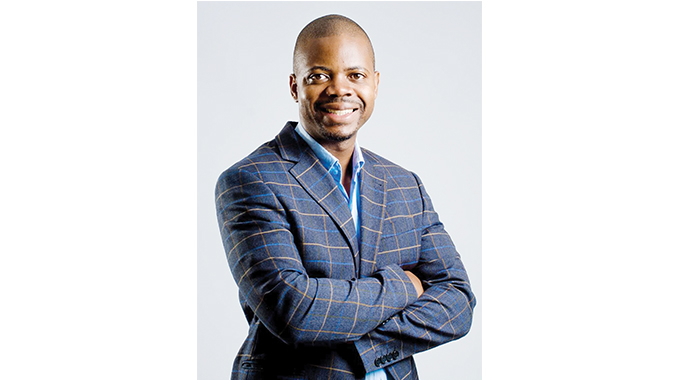Africa should pursue integration to unlock economic value

Michael Magoronga, Midlands Correspondent
AFRICA is one of the world’s richest continents in terms of occurrence of natural resources but remains one of the poorest economically.
Standards of living for its population are low, its infrastructure and health delivery systems are poor and are a direct contrast to the natural resources available in the continent.
Former colonial masters have taken advantage of the lack of co-ordination and integration in the continent to plunder the resources and using them to build their own economic empires at the expense of Africans.
From minerals to agricultural produce, Africa has no poverty of resources. But all that is shipped to developed countries in their raw form where they are processed and sold back to Africa at high prices.
Cocoa, which makes chocolate, is produced in West Africa with Ivory Coast being the major producer alongside Ghana, Nigeria and Cameroon. The countries produce 70 percent of the world’s cocoa beans, but they do not have the capacity to manufacture chocolate.
Growing cocoa is labour intensive. Caring for and harvesting the beans requires close and continuous attention. The cocoa tree bears fruit throughout the year. It produces large cocoa pods, which need to be cut from the trees by machetes or sticks.
And with all the hard labour, the farmers have little say in determining the prices of their produce with accusations that global chocolate makers are “turning a blind eye” to serious problems in the sector.
In Ivory Coast for example, farmers could be paid up to 21 percent less year-on-year for their 2021/22 cocoa harvest.
In October 2020, the country’s cocoa producers were paid US$0,90 per kilogramme against a minimum guaranteed producer price for a kilogramme of cocoa which now stands at 825 West African CFA francs ($1,45).
This comes despite a rise in prices on New York’s ICE exchange.
Lower prices are expected to plunge farmers into poverty, increase the prevalence of modern slavery and add to the rates of illegal child labour.
In southern Africa where countries like Zimbabwe, South Africa, Mozambique, Botswana, DRC, Zambia and Tanzania produce gold, platinum, copper and diamonds among other minerals the story is the same.
In Zimbabwe, the majority of the working population are in the informal sector. And in mineral-rich areas of the country, poverty abounds when minerals at their doorsteps are taken out for processing out of the country.
Zimbabwe’s mining sector has a significant role in the development of the country as it brings in foreign currency and contributes to Government revenue for infrastructure and other developments.
Since 2009, the mining sector has become the fastest growing industry with both small-scale mining companies, artisanal miners and multinational companies contributing significantly to its growth.
Zimbabwe has however, been losing money through gold smuggling and the country needs to do more to plug the leakages, while the Government’s value addition and beneficiation drive should be pursued with renewed vigour.
There is a need therefore for African countries to approach the important need for value addition singularly. More integration is required so that there is an increase in trade within Africa as the continent unbuckles itself from dependence on the developed countries.
It is in that light and spirit that conventions like the Intra-Africa Trade Fair (IATF) and other initiatives like the African Continental Free Trade Area (AFCTA) as well as the African Union Agenda 2063, have been put in place to bring the best out of Africa and make sure member states benefit from each other.
The US$42,1 billion worth of trade and investment deals agreed among African countries at IATF late last year in South Africa is a good pointer that Africa can solve its own problems if it pursues regional integration.
According to Pan African Manufacturers Association (PAMA) interim president, Engineer Mansur Ahmed, African countries are not doing enough to economically benefit from each other in a way they should hence the need for economic integration to achieve economic prosperity.
Eng Ahmed who is also the IATF Ambassador urged African countries to invest among themselves and create value chains that are beneficial to all countries involved.
He said coming together of countries economically and learning to share ideas and resources would lead to economic prosperity and take advantage of the 1,2 billion African market.
“We recognise that we are Africans but we remain isolated countries and nations and the level of appreciation of what we share and the potential of all of us has been very low until very recently when a new crop of leaders came in,” said Eng Ahmed.
He said African nations should be able to prioritise economics before politics, which is a source of conflicts on its own.
Eng Ahmed also heaped praises on the current crop of leaders saying they were now realizing the importance of economic ties as compared to political ties.
“The new African leaders like President Emmerson Mnangagwa, Nigerian Muhammadu Buhari as well as South Africa President Cyril Ramaphosa among others are now creating and spearheading forums where business can be discussed rather than the pre-independence and recent post-independence leaders who focused more on political gains. This has seen forums like the IATF being organized so that one country can benefit from another,” he said.
One African country should identify its strength and weaknesses and see how it can work with another country to develop that strength.
If Africans unite economically, former colonial masters would not be exploiting the continent of its resources at the expense of the people and their economies.
Instead, integration and the ability to add value will lead to production of competitive goods that are marketable not only in Africa but globally.
“We should be able to integrate the isolated 55 African countries into smaller regional blocs like Ecowas, Comesa, Sadc that can share ideas and produce competitive products that are global,” he said.
Intra Africa Trader and Scix African Trade Talks Podcast host, Mr Chad Chawanda is of the idea that for Africa to improve lives of its people, it needs to grow its manufacturing industry as it has a huge impact to other industries. Manufacturing, he said, is key towards wealth creation. “Zimbabwe for example, has a huge manufacturing potential and can also provide a platform for other African manufactures to service neighbouring countries as Zimbabwe is a landlocked country,” he notes.
Intra Africa trade needs to be open up.
“There are many initiatives that are being pursued to open up Africa and drive intra Africa trade such as the setting up of Pama, the launching of Africa Business Council and other initiatives being driven by Afreximbank.
“There is also a due diligence platform that will help when one wants to venture into new territory, all these will need to know who they are dealing with, and Mansa provides that ability,” said Chawanda.
Economist, Mr Eddie Cross, believes the African market is big enough if integration takes centre stage.
“No individual economy in Africa has the size to stand on its own like the Europeans do, so I think working together is very important if we are to achieve economic prosperity,” said Mr Cross.
The bottom line is that Africa has the potential to unlock own investment opportunities and provide home grown economic solutions if integration is prioritised.











Comments